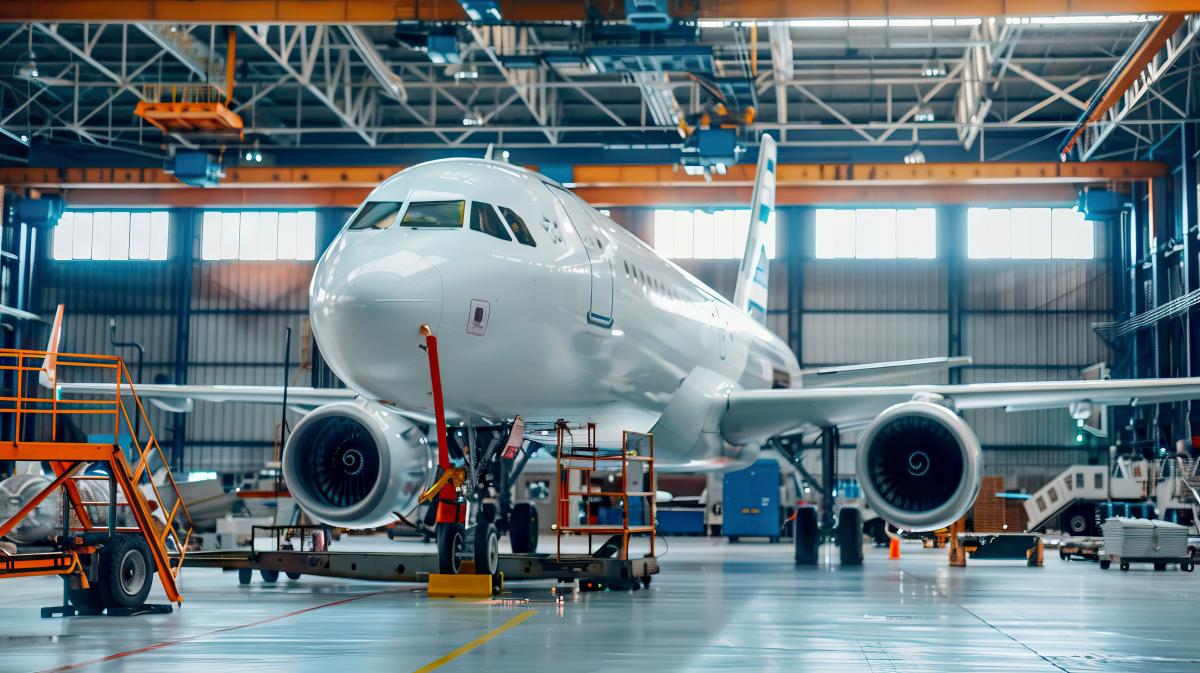France in command of global aviation
A heavyweight of the French economy
The aeronautical sector plays a central role in the French economy, contributing 70.2 billion euros to national GDP in 2023. Encompassing global giants such as Airbus and Safran, it generates over 210,000 jobs spread across the whole country. A major exporter, the aeronautical industry is the number one contributor to France’s trade balance and is a key lever for the extension of French influence internationally.
(Sources: Gifas and the Conseil National de l’Industrie)

A complete industry and top-flight training
France is the only country, alongside the USA, to have a complete aeronautical industry, comprising the design, production and maintenance of civil and military aeronautical equipment (aircraft, helicopters, drones, dirigibles).
Many leading groups, such as Airbus, Thales, ATR and Safran, rely upon a network of sub-contractor companies, mainly SMEs and ETIs (intermediate-sized companies), offering skills ranging from the manufacture of tools and simple mechanical and electronic components to the design, manufacture and assembly of complex systems. France is also home to three clusters of competitiveness: Aerospace Valley (Occitanie and Nouvelle-Aquitaine), ASTech (Ile-de-France) and SAFE Cluster (Provence-Alpes-Côte d’Azur).
In terms of training, France offers cutting-edge aeronautical training that is adapted to the needs of a constantly evolving sector. The École Nationale de l'Aviation Civile (ENAC) in Toulouse trains some of the world’s best-trained pilots and aeronautical engineers; the Institut Supérieur de l’Aéronautique et de l’Espace (ISAE-SUPAERO), also based in Toulouse, is renowned for its engineering and research courses; while engineering schools such as IPSA and ESTACA prepare students for the technological challenges of tomorrow. Lastly, professional schools, such as the Lycée Airbus, provide technical training in aeronautical maintenance and production. As a result, these institutions play a key role in the competitiveness of the French aeronautical industry.
“Aviation, and more generally aeronautics, are industries in which we can become world-leaders and come out on top in the fourth revolution in this sector, namely decarbonisation”.
Guillaume Faury, CEO of Airbus and Chairman of the Groupement des Industries Françaises Aéronautiques et Spatiales (GIFAS)
The French aeronautics sector is the beneficiary of numerous research and development investments which are essential to maintain its competitiveness and to meet technological and environmental challenges.
Aeronautical and space construction is the second biggest manufacturing industry in terms of R&D. As part of the France 2030 investment plan, 1.2 billion euros have been pledged to the aeronautical sector with the aim of developing a low-carbon aircraft by 2030. This plan supports innovation from basic research through to industrialisation.

Towns and cities at the cutting edge of aeronautics
Toulouse, Paris, Bordeaux, and Marignane (near Marseille), as well as Aix-en-Provence, Nantes and Saint-Nazaire are locomotives for the French aeronautical sector and contribute to the country’s technological excellence in this field, as well as the global competitiveness of French industry:
● Toulouse: Europe’s aeronautical capital is home to the headquarters of Airbus and is a hub for aeronautical engineering and production. The Aeromart Toulouse trade show is the world’s biggest business event dedicated to aeronautics in terms of number of visitors, attendees and B2B meetings.
Discover the Musée Aeroscopia in Toulouse-Blagnac, a showcase for the aeronautical sector, which explores the history of aviation from its very beginnings, technical innovations over the decades, as well as those still to come. Legendary aircraft such as the A380, Concorde, the Caravelle and even the Super Guppy are all on display and immortalised here.
● Nantes and Saint-Nazaire are, thanks to their 5,900 employees, home to Airbus’ second largest site in France. The current momentum of this European manufacturer is also helped considerably by numerous sub-contractors within an environment that is highly conducive to innovation and R&D.
● Paris and Île-de-France: Thanks to Safran, Dassault Aviation and Le Bourget, Paris is home to the headquarters of numerous companies within the sector. The Paris Air Show at Le Bourget, which is held every two years, is the world’s oldest and most prestigious event within the industry.
● Bordeaux: A city that stands out for its defence- and aeronautics-linked activities, it is home to the Dassault and Thales factories as well as Aerospace Valley, the world’s leading cluster of competitiveness in the aerospace sector, with a focus on three strategic areas: aeronautics, space and drones. Lastly, AD2S (the Aerospace & Defence Support Services Show), held in the city, is a key event for the defence and aerospace sectors.
● Marignane: Situated close to Marseille, Marignane is at the heart of the helicopter industry thanks to the presence of Airbus Helicopters.
● Aix-en-Provence is a leading player in France’s aeronautical sector thanks to the SAFE Cluster, a cluster of competitiveness that brings together companies, researchers and specialist institutions. This cluster stimulates innovation and collaboration, and facilitates the development of advanced technologies in the aeronautical and space sectors.
Decarbonised aircraft in 2035
The French aeronautical industry is the spearhead of the country’s economy and is preparing to take on major challenges in the years ahead. Ecological transition is opening the path to major new possibilities through the development of decarbonised aircraft, in particular powered by hydrogen, which is expected in 2035. The growth in the drone and autonomous systems market also offers new opportunities, particularly for innovative SMEs.



